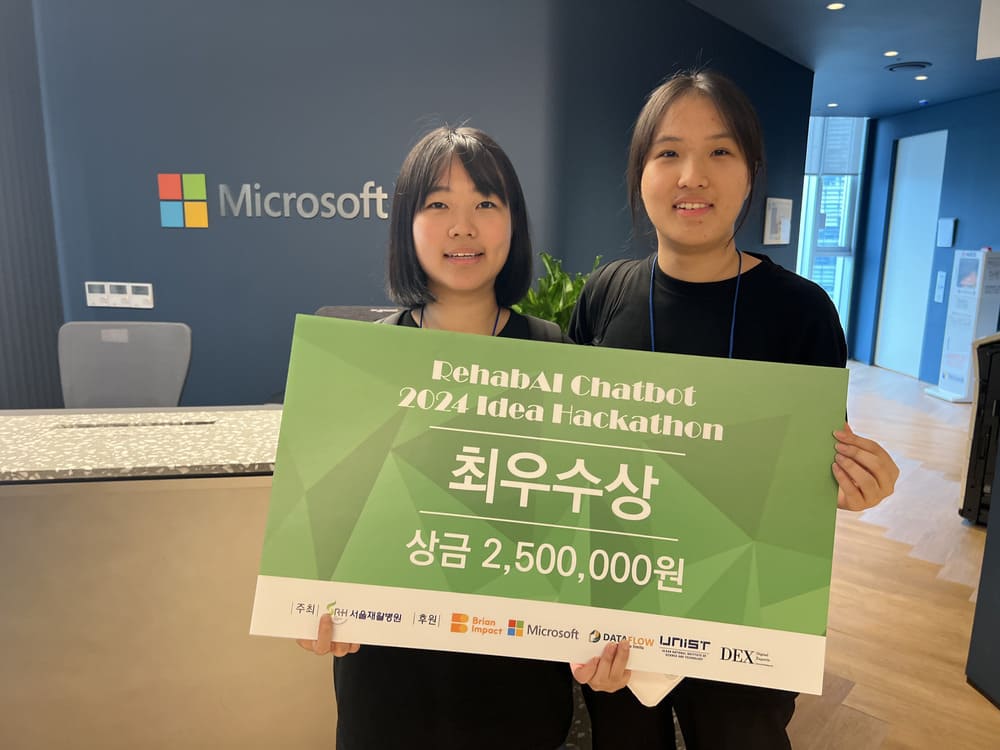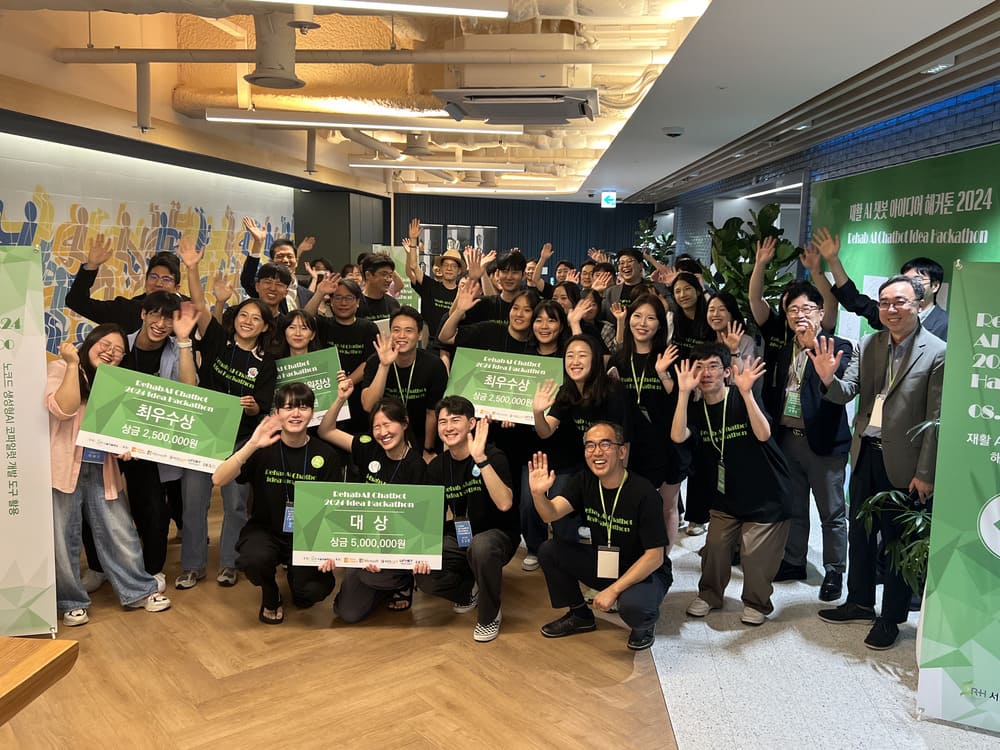National: Second place, Seoul rehab AI Chatbot Idea Hackathon (out of 168 teams)
Grade 12
Idea and software development competition by providing creative ideas to solve problems of patients of various diseases using AI chatbot services. Out of 97 teams and 168 participants in the Seoul Rehabilitation Hospital AI Idea Contest, I secured second place.
I am deeply passionate about addressing the problems my grandfather faces as an Alzheimer's patient. Motivated by a desire to alleviate his difficulties, I envisioned creating an AI system that could provide individualized care to patients. My goal was to use my programming skills to bring this vision to life. To achieve this, I participated in a competition that combines business and technology to transform my idea into reality.
|
|
For this project, I proposed an AI chatbot that can communicate with Alzheimer's patients and provide assistance without their caregivers. This was to move towards reducing the burdens on both the Alzheimer patient and caregiver. The competition was structured into three stages: idea development, prototyping products, and final pitch.
For the idea development phase, I researched Alzheimer ’s-related issues and struggles, applying my insight from experiences with my grandfather. My findings highlighted the increasing correlation between the increasing global population ages and the number of Alzheimer’s patients. One major challenge was the communication between the patient and caregiver due to memory loss issues. For example, Alzheimer’s patients will continuously call their caregiver, forgetting their previous interactions. Therefore, the chatbot would mitigate the problem as the chatbot can provide comfort and reassurance to the patients in place of the caregivers. Part of our solution included providing a regular alarm system that would remind patients to take their medicine and provide their summary interactions throughout the day. We also analyzed stakeholder benefits to suggest our system’s value.
|
|
During the prototyping development phase, we outlined the databases required to support the chatbot’s functions. We included a database for pre-set responses from caregivers: one for medication schedules, one for meal schedules, and another with health-check questions to ensure the patient’s health. This encouraged me to consider the technical side of the business, not only user delivery but also the program’s actual development. Using concepts from my computer science database unit, I designed a database structure to maximize dataset efficiency. Additionally, I integrated Copilot API, leveraging my knowledge of its capabilities as the chatbot’s main model.
My project gained recognition from doctors and medical staff at the Seoul Rehabilitation Hospital, earning us a spot as a top ten finalist. Supported by large companies including Microsoft, DEX Consulting, and Ulsan National Institute of Science & Technology (UNIST), this competition was an invaluable learning experience. The programming lecture enriched my knowledge regarding AI and the usage of Copilot Studio to generate a user-centered chatbot. In addition, through the workshop, I connected with professionals across fields – doctors, programmers, and teachers – who shared the goal of aiding those who needed it the most. Overall, our team had the honor of presenting our project to distinguished leaders, including the Chief of the Medical Clinic, the Chairman of UNIST, and the Executive of BrianImpact. We systematically designed the presentation to effectively communicate our message, which was achieved through endless practice. Ultimately, we placed second, a recognition that not only reinforced my belief in collaborating with people of various fields but in also using my skills to make a difference for my community.
|
|


